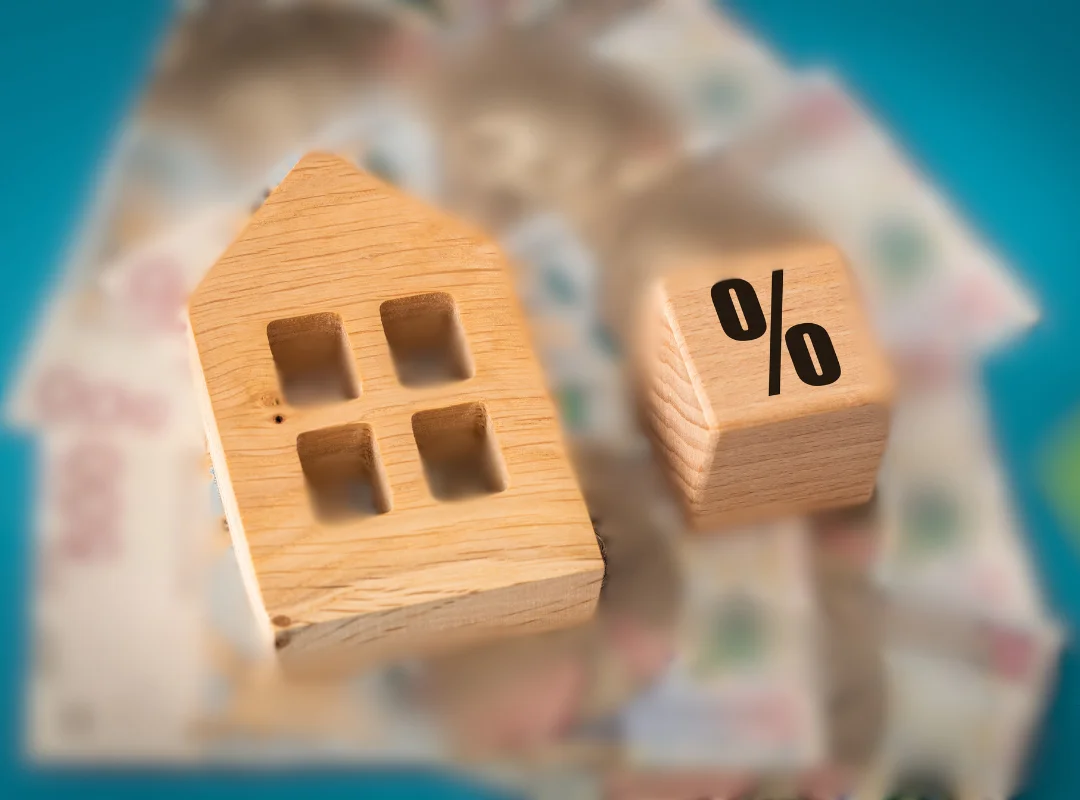When selling a property, understanding estate agents fees is crucial for any homeowner. Estate agents fees can significantly impact your overall profits from a sale knowing what to expect helps you make informed decisions. This guide delves into everything you need to know about estate agents fees in the UK, how they are calculated and tips for negotiating the best deal.
Contents
- 1 What Are Estate Agents Fees?
- 2 Types of Estate Agents Fees
- 3 What Do Estate Agents Fees Include?
- 4 How to Compare Estate Agents Fees
- 5 Hidden Costs to Watch Out For
- 6 Negotiating Estate Agents Fees
- 7 Sole Agency vs. Multi-Agency: Which is Better?
- 8 Estate Agents Fees vs. Cash Buying Company Fees
- 9 Conclusion
- 10 FAQs
What Are Estate Agents Fees?
Estate agent fees are the costs you pay an estate agent to handle the sale of your property. These fees cover a range of services including marketing the property, conducting viewings, negotiating with potential buyers finalising the sale. Typically, estate agents charge a percentage of the final sale price, although some may offer a fixed fee structure.
Types of Estate Agents Fees
Percentage-Based Fees: This is the most common type of fee structure. The estate agents charge a percentage of the property’s final sale price, usually ranging from 1% to 3.5% plus VAT. The percentage can vary depending on whether you have a sole agency agreement (where only one agent is used) or a multi-agency agreement (where multiple agents are involved).
Fixed Fees: Some estate agents offer a fixed fee, which is a set amount regardless of the property’s sale price. This is often seen with online estate agents. Fixed fees can be appealing as they provide cost certainty, but it’s important to ensure that all necessary services are included in the quoted price.
Tiered or Sliding Scale Fees: Some estate agents operate on a sliding scale, where the fee percentage changes based on the final sale price achieved. For example, a lower percentage fee may apply if the sale price is below a certain threshold and a higher percentage if the sale exceeds it. This model incentivises the agent to achieve a higher sale price.
What Do Estate Agents Fees Include?
Estate agents fees typically cover several key services:
- Property Valuation: Professional valuation based on local market trends and recent sales data.
- Marketing: This includes online listings on major property portals like Rightmove and Zoopla, as well as offline methods such as brochures and local advertisements.
- Photography and Floor Plans: Professional photography and detailed floor plans to showcase your property in the best light.
- Viewings Management: Organising and conducting property viewings, including open houses.
- Negotiations: Handling negotiations with potential buyers to secure the best possible sale price.
- Sales Progression: Liaising with solicitors, mortgage brokers other parties to ensure the sale proceeds smoothly to completion.

How to Compare Estate Agents Fees
When comparing estate agents fees, it’s essential to consider more than just the cost. Here are some factors to evaluate:
- Success Rate: Look at the agent’s track record for selling properties similar to yours. High-performing agents may justify a higher fee if they consistently achieve better sale prices.
- Time to Sell: Consider how quickly the agent typically sells properties. An agent who sells homes faster might be worth a slightly higher fee, especially if you’re looking to move quickly.
- Marketing Strategy: Evaluate the agent’s marketing strategy. A comprehensive marketing plan that includes online listings, social media promotion offline advertising can make a significant difference in attracting potential buyers.
- Fee Structure Transparency: Ensure the agent’s fee structure is clear and transparent. Some agents might quote fees excluding VAT, so always confirm whether VAT is included to avoid surprises later.
Hidden Costs to Watch Out For
While most estate agents fees cover the essentials, some agents may charge additional fees for certain services:
- Energy Performance Certificate (EPC): Legally required to sell a property in the UK, an EPC assesses the property’s energy efficiency. Some agents include this in their fees, while others charge extra.
- Enhanced Marketing Packages: Premium services such as professional video tours, premium listings on property portals additional advertising can incur extra costs.
- Withdrawal Fees: Some agents may charge a fee if you decide to withdraw your property from the market or terminate the contract early. Be sure to check the terms and conditions of your agreement.
Negotiating Estate Agents Fees
Negotiating estate agents fees can save you a significant amount of money. Here are some tips for successful negotiation:
Get Multiple Quotes: Obtain quotes from at least three different estate agents. This gives you a better understanding of the going rate and provides leverage to negotiate lower fees.
Ask for a Sliding Scale: Propose a sliding scale fee structure to incentivise the agent to achieve a higher sale price. For example, a lower fee if the property sells below a certain price and a higher fee if it sells above it.
Request Fee Matching: If you receive a lower quote from another agent, ask your preferred agent if they are willing to match it. Many agents are open to negotiation, especially in competitive markets.
Consider Offering Incentives: Offer performance-based incentives, such as a bonus if the agent sells the property within a specific timeframe or above the asking price.
Sole Agency vs. Multi-Agency: Which is Better?
Choosing between a sole agency and a multi-agency agreement can impact your estate agents fees and the overall sale process.

Sole Agency
You engage a single estate agent to handle the sale of your property. The fee is typically lower (around 1% to 2% plus VAT), but you only have one agent working on your behalf. This option is generally more straightforward and less expensive.
Multi-Agency
You engage multiple estate agents to market your property simultaneously. The fee is higher (around 3% to 3.5% plus VAT), but the competition between agents can drive a quicker sale and potentially a higher sale price. However, this option can be more complex to manage and more expensive.
Estate Agents Fees vs. Cash Buying Company Fees
When comparing traditional estate agents fees to those of a cash-buying company, several differences come into play.
Estate Agents Fees are typically calculated as a percentage of the final sale price, usually ranging from 1% to 3.5% plus VAT. These fees cover services like property valuation, marketing, and viewing negotiations. While estate agents aim to achieve the highest possible sale price, the process can be lengthy and comes with additional costs like legal fees and potential hidden charges.
Cash Buying Company Fees, on the other hand, are often much simpler and more transparent. Most cash-buying companies do not charge any fees to the seller; instead, they provide an offer below the market value that reflects the convenience and speed of the sale. This option is ideal for those looking to sell quickly without the hassle of traditional property sales. Sellers can avoid costs associated with estate agents, such as marketing fees or withdrawal penalties, and often benefit from a guaranteed sale, eliminating the risk of a transaction falling through.

Conclusion
Understanding estate agents fees and their implications is crucial when selling a property. While fees are a significant cost, they reflect the value of the services provided, from marketing to negotiation to finalising the sale. Always compare agents not just on fees but also on their track record, marketing strategy overall professionalism. By doing so, you can find the right agent who offers the best value for your money.
Before signing any agreement, ensure you fully understand the terms, including any hidden costs or clauses. By being informed and proactive, you can negotiate better terms and ultimately achieve a successful property sale with minimal stress and maximum financial gain.
FAQs
Can I negotiate estate agents fees?
Yes, most estate agents are open to negotiation. It’s always worth asking for a better deal, especially if you have multiple quotes to compare.
Are online estate agents cheaper?
Online estate agents often charge lower fees, usually a fixed rate. However, it’s important to compare the level of service provided and not just the cost.
Do I have to pay estate agents fees upfront?
Typically, estate agents fees are paid upon the completion of the sale. However, some agents, particularly online ones, may require upfront payment or offer deferred payment options.
What is a withdrawal fee?
A withdrawal fee is a charge some agents impose if you decide to take your property off the market or terminate the contract early. Always check the terms before signing.
What are the benefits of selling to a cash buyer?
Selling to a cash buyer offers several advantages, including a quicker sale process, no estate agents fees, and reduced risk of the sale falling through. Cash buyers often purchase properties “as-is,” meaning you won’t need to make costly repairs or renovations. This option is particularly appealing if you need to sell quickly or want to avoid the uncertainties and costs associated with traditional property sales.
Do cash buyers offer the market value for properties?
Cash buyers typically offer below market value, reflecting the convenience, speed, and certainty they provide. However, the lack of fees, the quick sale process, and the assurance of a guaranteed sale often make this a worthwhile trade-off for sellers looking for a straightforward, hassle-free transaction.
Related articles



